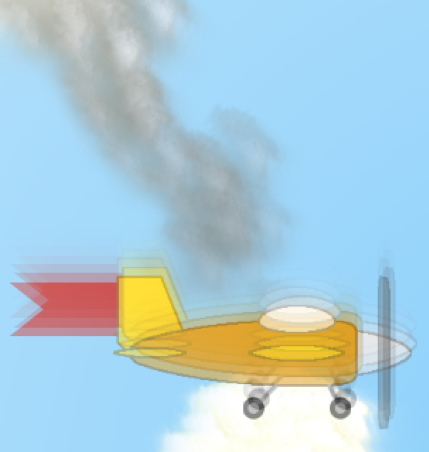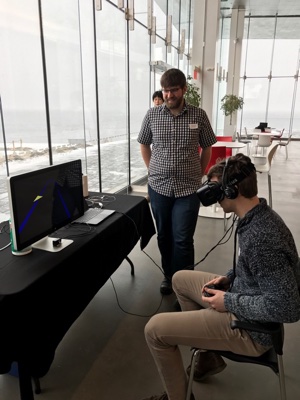News
Beyond Fun
19/10/21 20:09

What does it mean for persons with disabilities to be able to play video games when they thought this pastime was no longer available to them? Gabriele Cimolino and co-authors Dr. Sussan Askari of Providence Care and Nick Graham asked this question of persons with spinal cord injury, and today, Gabriele presented the results of this work at the ASSETS 2021 conference.
For more information, see the video and the paper, and read about the project
Presenting Partial Automation
19/10/21 19:53
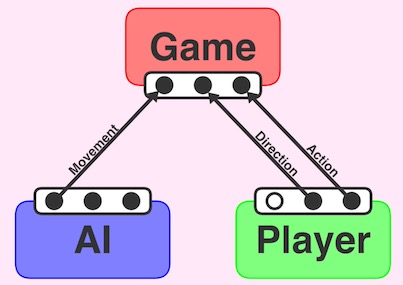
Gabriele Cimolino presented today his work on partial automation at the CHI PLAY 2021 conference. Partial automation is a technique making rehabilitation games accessible to people with very difficult abilities, for example as due to spinal cord injury. With partial automation, the game player controls whichever game inputs they can control, and an AI agent controls the game's other inputs. This work was in collaboration with Dr. Sussan Askari of Providence Care in Kingston, and Nick Graham.
For more information, see the video and the paper, and read about the project
Alaska Steve
08/03/17 14:07
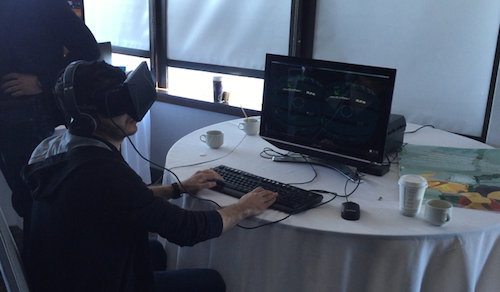
Liam Collins presented the game Alaska Steve: Bite Frost Back as part of the Kingston Film Festival's Digital Media Showcase. Alaska Steve shows how virtual reality can add a new dimension to 2D games. Alaska Steve was developed by Queen's students Liam Collins, Stefan Eylott, and John Leedale. For more information on Alaska Steve, see the video and the paper.
Nudging and Shoving
31/01/17 10:09
Arcaid VR at iON Kingston Virtual Reality Exhibition
24/01/17 23:55
Nick Graham discusses Pokémon Go
23/07/16 13:20
On Radio Canada International, Nick Graham discusses Pokémon Go and trends in augmented reality. He also discusses the EQUIS Lab's work on how to make mobile augmented reality safe.
Click through to read Pokémon Go, for better and worse and listen to the interview.
Click through to read Pokémon Go, for better and worse and listen to the interview.
Presenting Brains & Brawn
08/06/16 09:28
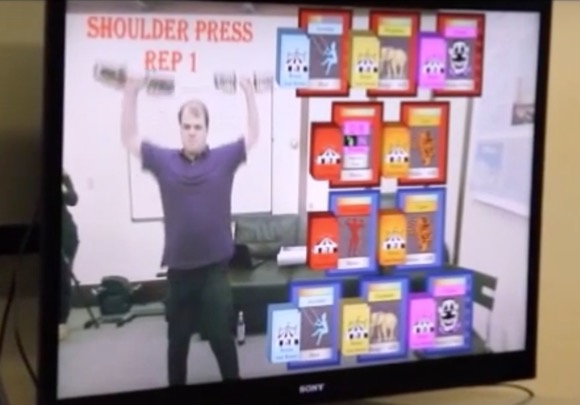
Chad Richards presented the paper “Developing Compelling Repetitive-Motion Exergames by Balancing Player Agency with the Constraints of Exercise” at the 2016 Designing Interactive Systems (DIS) conference. The paper shows how it’s possible to design fun and engaging games around the constraints of repetitive motion exercises such as strength training or physical rehabilitation.
For more information and a video, click here.
Presenting Thighrim and Calf-Life
10/05/16 11:23
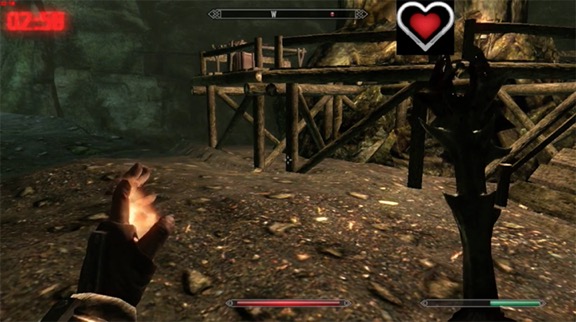
Mallory Ketcheson today presented the paper “Thighrim and Calf-Life: A Study of the Conversion of Off-the-Shelf Video Games into Exergames” at this year’s Human Factors in Computing Systems (CHI) conference. The paper shows how block-buster video games like Skyrim and Half-Life can be converted into successful exergames. For more information, see this description and video of the work. Mallory performed this work with Luke Walker and Nick Graham.
EQUIS Lab YouTube Channel
01/05/16 09:04
The EQUIS Lab now has a YouTube Channel. We've collected our videos on research in exergames, simulation-based training and game networking into a single place. Hope you enjoy it!
